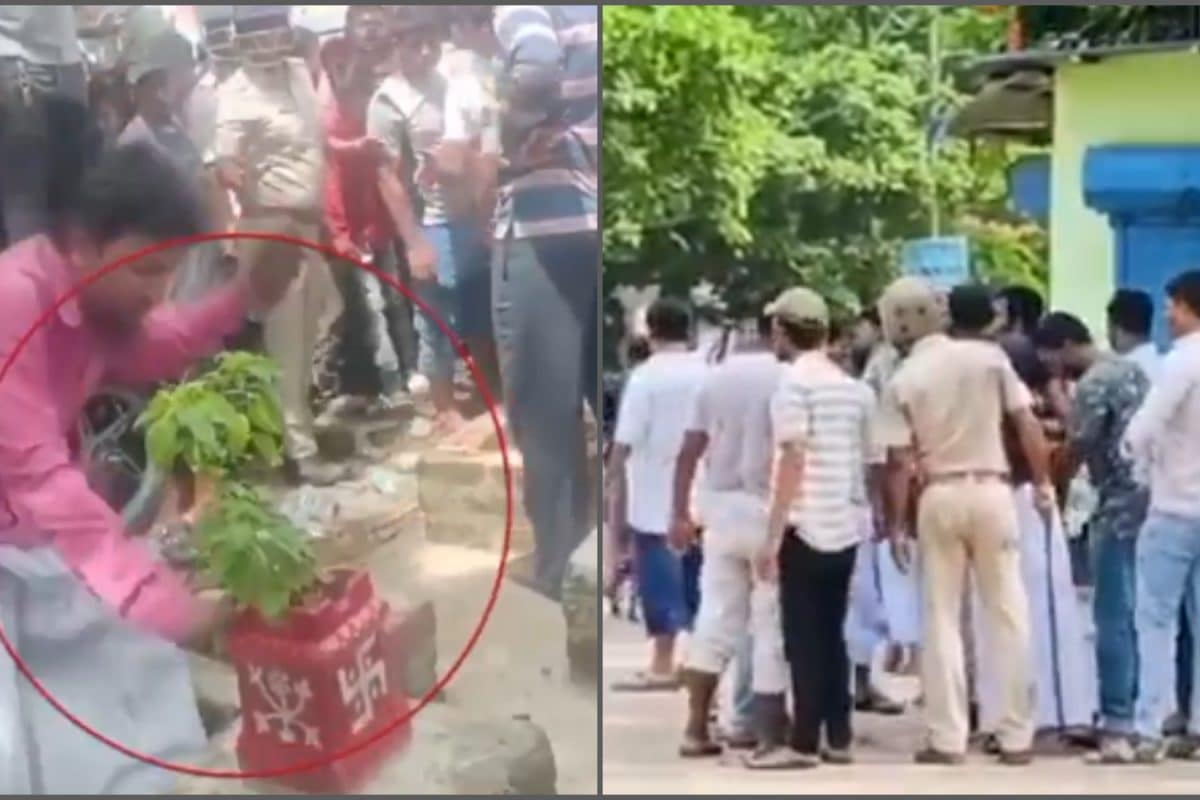

Recent incidents of temple vandalism in Maheshtala, West Bengal, have ignited a fresh wave of political accusations, with the Bharatiya Janata Party (BJP) sharply criticizing Chief Minister Mamata Banerjee and her Trinamool Congress (TMC) government. The BJP has alleged that these acts of vandalism are a direct consequence of the TMC's appeasement policies towards certain communities, further intensifying the already strained relationship between the two parties.
The specific details surrounding the Maheshtala temple vandalism are still emerging. However, the BJP has been swift in condemning the incidents, claiming that they represent a broader pattern of attacks on Hindu religious sites and sentiments within the state. They argue that the TMC government, in its efforts to consolidate minority votes, has been neglecting the security and protection of Hindu temples and religious symbols.
BJP leaders have been vocal in their criticism, accusing Mamata Banerjee of prioritizing appeasement politics over maintaining law and order and ensuring the safety of all communities. They point to past incidents and policies which they claim demonstrate a bias towards minority communities, fostering an environment where such acts of vandalism can occur with impunity. The BJP's state leadership has called for immediate action to apprehend the culprits and ensure that such incidents are not repeated. They have also demanded that the state government take concrete steps to restore the damaged temples and provide adequate security to prevent future attacks.
The TMC, on the other hand, has refuted these allegations, dismissing them as baseless and politically motivated. They maintain that the state government is committed to protecting all religious institutions and ensuring the safety and security of all citizens, regardless of their faith. TMC leaders have accused the BJP of deliberately trying to create communal disharmony and polarize the electorate for their own political gain. They argue that the BJP is exploiting isolated incidents to paint a false picture of religious discrimination and incite hatred between communities.
Mamata Banerjee herself has often countered such accusations by asserting her own Hindu identity and emphasizing her government's commitment to secularism and inclusivity. She has accused the BJP of promoting an "imported Hindu dharma" and questioned their right to issue "Hindu certificates." She has also reminded the BJP that India's democracy is founded on sovereignty, secularism, and pluralism, guaranteeing every citizen the right to practice their religion freely.
The political ramifications of these incidents are significant, particularly in the lead-up to future elections. The BJP is likely to intensify its efforts to consolidate Hindu votes by highlighting the alleged failures of the TMC government to protect Hindu interests. They may also use these incidents to further polarize the electorate and create a narrative of Hindu victimhood. The TMC, in turn, will likely focus on countering these narratives by emphasizing its commitment to secularism and social harmony. They may also attempt to highlight the BJP's alleged divisive tactics and its history of communal politics.
The incidents in Maheshtala underscore the delicate balance of communal relations in West Bengal and the potential for political exploitation of religious sentiments. The state government faces the challenge of maintaining law and order, ensuring the safety of all religious institutions, and preventing the spread of misinformation and hate speech. The opposition, on the other hand, needs to act responsibly and avoid using such incidents to incite communal tensions or undermine social harmony.